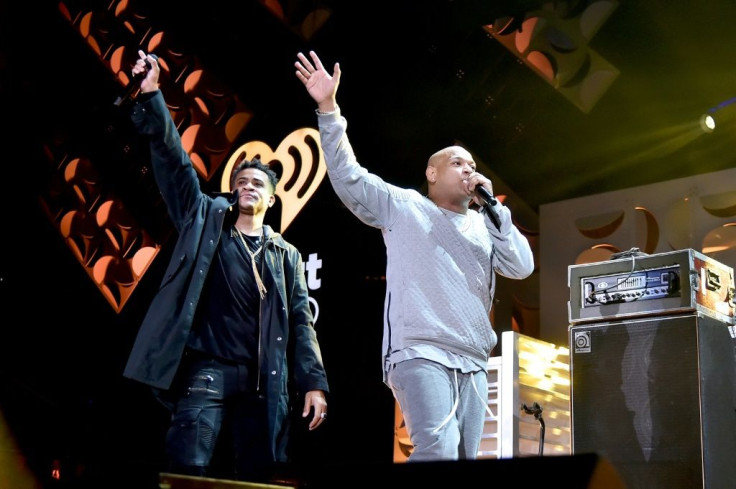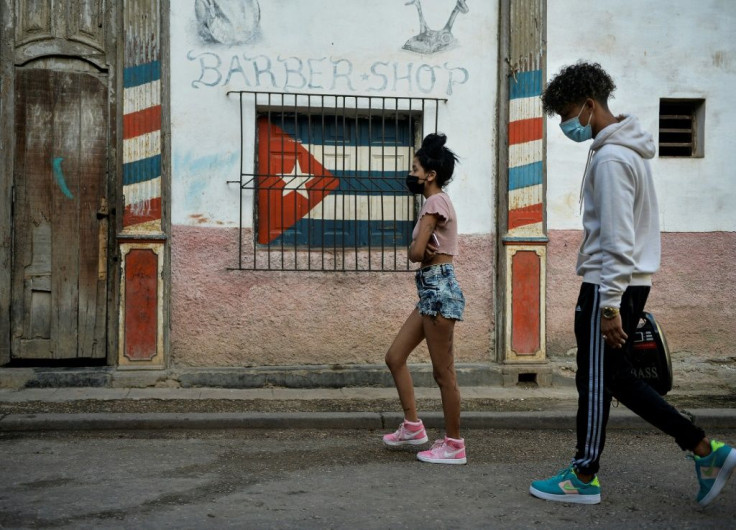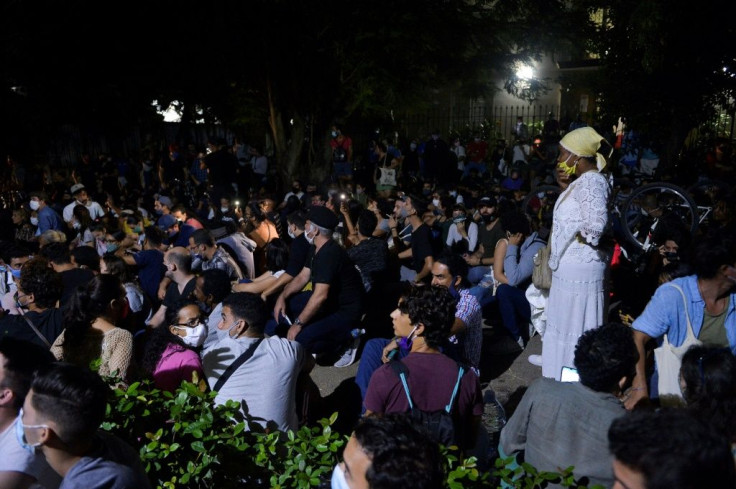Rap Hit Rattles Leaders Of Communist Cuba
In Cuba, where music and revolution are intertwined, a song by rappers boldly denouncing the communist government has found viral appeal online -- but angered a regime that keeps close tabs on culture.
Entitled "Patria y Vida" (Fatherland and Life) -- a positive spin on the slogan "Patria o Muerte" (Fatherland or Death) coined by Fidel Castro in 1960 -- the song has racked up more than two million views since its release on YouTube on February 16.
It boasts nearly 130,000 likes -- but also 4,400 dislikes.
The track does not pull any punches.

Singers sporting gold chains, hoodies and backwards baseball caps rattle off a long list of grievances about poverty, repression and misrule before declaring: "It is over" and "We are not afraid."
The melodious challenge certainly appears to have rattled some in power.
The government has denounced the tune as a provocation, with a flood of complaints on Twitter from President Miguel Diaz-Canel and other politicians.
The state-controlled Cuban press has called it an attempt at "gross political interference."
The Cuban government has been used to having local musicians sing to its tune since the 1959 revolution that installed a communist system.

Many of the well-known songs that have emerged over the last six decades have praised Che Guevara and Fidel Castro, and some popular folk tunes extol the virtues of hard physical labor and communist doctrine.
But times have changed, and rather than acoustic guitars and drums, today's musical revolutionaries drop electronic beats and have embraced a hip-hop singing style to convey their messages.
In the "Patria y Vida" video, images of poverty and police violence flash on the screen between close-ups of the singers, one of them dreadlocked and bare-chested -- pointing accusatory fingers at the camera and declaring: "No more lies. My people demand freedom."
Recorded in Havana and Miami, the track is a collaboration between duo Gente de Zona and singer-songwriters Descemer Bueno and Yotuel Romero from the group Orishas -- all based in Florida -- as well as Cuban-based rappers Maykel Osorbo and El Funky.

The song is not universally popular at home, though.
While the hashtag #PatriaYVida quickly became popular on social media, there were many others to share the alternative #PatriaOMuerte.
The video alludes to national icons such as Jose Marti, and pays tribute to a group of dissident artists known as the San Isidro Movement which staged a rare protest in Havana last November, and has kept up pressure with an online campaign for free speech.
But Diaz-Canel, in his fourth Twitter response to the rappers, on Monday urged support from other artists, quoting poet Tomasita Quiala in telling the rappers that their song did not 'frighten' him.
On Wednesday -- a national day of commemoration for the start of Cuba's independence war -- dozens of pro-government artists heeded the call, and gathered outside the culture ministry in a show of support.
In the evening, as people gathered on their balconies to sing the national anthem in an unannounced counter-offensive, cries of "Patria O Muerte" were heard in several neighborhoods.
On Thursday, Diaz-Canel tweeted again.
"Cuba was flooded yesterday #24deFebrero with the work of artists and intellectuals who love and honor it," he said.
The relationship between Cuba's revolutionaries and its artists has not always been smooth sailing, but this seems to be a new low, according to observers.
Maria Isabel Alfonso, a Cuban culture expert at St. Joseph's College in New York, said the government's reaction is "a confirmation that until now, the Cuban government has not been able to adopt a position of tolerance towards artists who criticize" it.
And Cuban music historian Emir Garcia said the popular track, hot on the heels of the San Isidro defiance, is perceived by some as having "damaged national pride."
The song erupted on the scene as Cubans are increasingly calling for more freedom and a better quality of life, a fight almost certainly bolstered by the arrival of the internet on the communist island in just the last few years.
© Copyright AFP {{Year}}. All rights reserved.





















